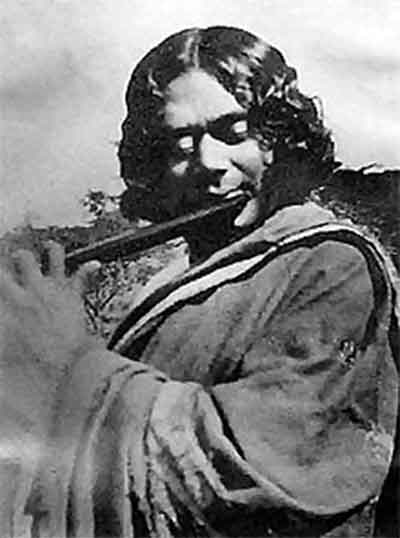
Introduction
In the annals of Indian literary history, the contributions of women are often underrepresented, particularly in the fields of Urdu literature, which has traditionally been dominated by male writers. However, Rashid un-Nisa (1855-1929), an educator, social reformer, and pioneering novelist, broke through these patriarchal barriers, leaving behind an indelible mark on Indian literature and social reforms. As the first Indian woman to write an Urdu novel, Islah-un-Nisa, and the founder of Bihar’s first girls’ school, Rashid un-Nisa’s legacy not only epitomizes the intellectual awakening of Muslim women but also underscores the significant role of literature in driving social change during the 19th and early 20th centuries.
Early Life and Intellectual Upbringing
Born in 1855 in Patna, Bihar, Rashid un-Nisa belonged to a highly educated and prominent family. Her father, Shamsul Ulama Syed Waheeduddin Khan Bahadur, was a renowned Islamic scholar, and her family was known for its intellectual prowess. Despite the absence of formal schooling for women at the time, Rashid un-Nisa received private education at home. Her education, provided by male tutors, allowed her to read and engage with classical Urdu and Persian literature, religious texts, and the intellectual discourse of her era.
Her marriage to Maulvi Mohammad Yahya, a lawyer and a man of progressive thought, further nurtured her interest in literature and social reform. It was in this environment that Rashid un-Nisa’s intellectual curiosity flourished, and she began to write, inspired by the prevailing literary culture and social issues of the day.
The Path to Writing: Islah-un-Nisa
Rashid un-Nisa’s writing journey, especially her novel Islah-un-Nisa, reflects the profound challenges she faced as a woman writer in a male-dominated society. Her exposure to Mirat-ul-Uroos (1869) by Deputy Nazir Ahmad, which promoted the education of women, played a pivotal role in inspiring her to pen her own novel. Mirat-ul-Uroos, though influential, was written by a man, and Rashid un-Nisa believed that for real change, women needed to be the voice of their own experiences.
In Islah-un-Nisa (translated as Reformation of Women), written in 1881, she presents an innovative approach to addressing societal issues related to women. Instead of merely offering moral advice or sermons, she chose the vehicle of fiction to highlight the challenges faced by women in Indian society. Through the character of Ashraf-un-Nisa, a woman advocating for self-improvement, education, and awareness, Rashid un-Nisa delves into the issues of ignorance, superstition, and social constraints that held back women from advancing in society. The novel emphasizes the necessity of education in lifting women out of ignorance and portraying them as active participants in their own social and moral reform.
Although Islah-un-Nisa was completed in 1881, it faced several delays before its publication due to the sociocultural environment, where women’s voices were seldom acknowledged, particularly in the realm of literature. The novel was finally published in 1894, with the author’s name conspicuously omitted, and instead, the book was credited to Rashid un-Nisa’s identity as the mother of Barrister Sulaiman, her son, who had received his education in England. This reflected the patriarchal social norms that stifled women’s recognition, even in intellectual spheres.
Despite these challenges, Rashid un-Nisa did not shy away from using her work to convey her advocacy for reform. The novel included dialogue between characters such as Ladli and Ashraf-un-Nisa, in which they questioned the impact of novels like Mirat-ul-Uroos. One poignant exchange highlights the skepticism about whether education alone can truly change societal attitudes towards women. Ashraf-un-Nisa, however, contends that while all women may not become educated like the character Asghari, even a few enlightened women would mark a success, reflecting Rashid un-Nisa’s belief in gradual yet impactful reform.
Women’s Education: Rashid un-Nisa’s Lifelong Mission
One of the most significant contributions of Rashid un-Nisa to Indian society was her unwavering commitment to women’s education. In 1906, she established the first girls’ school in Bihar, Madarsa Islamia (later known as Betia House), in Patna. The school was revolutionary, providing education to girls when it was a rare and often frowned-upon practice in conservative Muslim families. The curriculum included Urdu for Muslim girls and Hindi for Hindu girls, reflecting Rashid un-Nisa’s inclusive approach towards education for all women, irrespective of religion.
The importance of her initiative can’t be overstated, particularly in the context of the 19th century when access to education for girls, especially Muslim girls, was extremely limited. Her efforts garnered praise even from the British administration; Lady Stephenson, the wife of the Lieutenant Governor of Bihar, commended her work, further validating the significance of her contribution to the education of women.
Her commitment to women’s education was rooted in her belief that an educated woman would not only uplift her own family but would also serve as an agent of social change in the broader community. Her novel Islah-un-Nisa echoed this sentiment, advocating for the empowerment of women through learning and moral awakening.
The Role of Literature in Social Reform
At the heart of Rashid un-Nisa’s literary efforts was a desire to use literature as a tool for social reform. Her novel Islah-un-Nisa was part of a larger literary movement in the 19th century that sought to address social issues such as women’s rights, education, and the suppression of women in patriarchal structures. This movement was bolstered by British colonial policies that encouraged the education of women, particularly Muslim women, through monetary incentives for literature that promoted such causes.
Sir William Muir, a British official, was one of the earliest advocates for Muslim women’s education, and his speeches in the mid-19th century urged Indian Muslims to emulate the Egyptian example of women’s education. His call to action was met with both resistance and support, and the subsequent reward system introduced by the British government encouraged Muslim writers to address women’s education in their works. Alongside Rashid un-Nisa, writers like Maulvi Nazir Ahmad, Maulvi Karim Uddin, and Muhammad Hussain Khan also contributed to this dialogue through their works, though Rashid un-Nisa’s novel stands out for its unique perspective, written by a woman for women.
Rashid un-Nisa was not merely a passive participant in this literary tradition. She was fully aware that while male writers like Nazir Ahmad had written extensively on women’s issues, a woman’s voice was sorely missing from the discourse. In Islah-un-Nisa, Rashid un-Nisa responded to this gap by offering a narrative that women could relate to—a perspective rooted in her own lived experiences as a woman in 19th-century India. By writing from a woman’s perspective, she hoped to inspire more women to demand their rights and participate in social reform.
A Struggle for Recognition
While Rashid un-Nisa’s work was highly influential, she faced numerous societal and familial barriers. The publication of her novel was delayed by over a decade due to both internal family dynamics and the societal constraints placed on women of her status. Her novel’s initial release without an author’s name and the need to credit her as the mother of her son is a testament to the gender biases of the time. It reveals the immense struggle women like her faced to be recognized as authors and intellectuals.
In a poignant anecdote from her life, her daughter, Nisar Kubra, who would later become one of the earliest Urdu women poets, faced a similar fate. When Kubra wrote poetry as a young girl, her brother angrily destroyed her notebook, emphasizing the cultural taboos against women pursuing creative writing. This act of suppression, however, did not deter Rashid un-Nisa from encouraging her daughter or pursuing her own literary path.
A similar struggle was echoed in the work of Farhat Zahid, a contemporary Urdu poet who too confronted societal expectations and barriers that sought to suppress the voice of women in literature. The following poem by Farhat Zahid speaks to the strength and resilience of a woman who continues to stand firm despite immense societal pressure, portraying the internal conflict of being a woman bound by tradition, yet still determined to claim her space:
Poem by Farhat Zahid:
aurat huuñ magar sūrat-e-kohsār khaḍī huuñ
ik sach ke tahaffuz ke liye sab se laṛī huuñ
vo mujh se sitāroñ kā patā pūchh rahā hai
patthar kī tarah jis kī añgūThī meñ jaḍī huuñ
alfāz na āvāz na hamrāz na dam-sāz
ye kaise dorāhe pe maiñ ḵhāmosh khaḍī huuñ
is dasht-e-balā meñ na samajh ḵhud ko akelā
maiñ chob kī sūrat tire ḵheme meñ gaḍī huuñ
phūloñ pe barastī huuñ, dard kī bās hai
par maiñ chaand sitāroñ se bhi gaḍī huuñ.
This powerful verse by Zahid embodies the struggle of women, rooted in both tradition and modernity, symbolizing the silent, resilient struggle of a woman who remains strong despite societal opposition. Zahid, like Rashid un-Nisa, represents the quiet yet resolute voices of women in Urdu literature, pushing against the limits imposed by society.
Rashid-un-Nisa’s Enduring Legacy
Rashid un-Nisa’s efforts transcend her time and space, echoing the struggles and aspirations of countless women who sought education, self-determination, and recognition in a deeply patriarchal society. Her contributions to Urdu literature, especially as a novelist and reformer, were groundbreaking. She was an advocate of both intellectual and social reform for women, paving the way for later generations of women in India, especially in the Muslim community, to aspire for equality and education.
Her work Islah-un-Nisa became a beacon of change, inspiring many to challenge traditional norms and believe in the power of education as a tool for social reform. She recognized that social change began with women empowering themselves through knowledge, and she embodied this philosophy in both her literary works and her initiatives in education.
Rashid un-Nisa’s legacy lives on, not just in her pioneering novel, but also in the many girls and women who benefitted from the education she founded and nurtured. Her school in Patna became an important institution for women’s education in Bihar, which later spread across the region. She is remembered as a visionary who not only opened doors for Muslim women but also demonstrated through her work that literature could change hearts and minds.
Conclusion
Rashid un-Nisa was a trailblazer in a period when the possibilities for women were severely restricted, especially within the Muslim community. Her life’s work as a novelist and educator contributed to the foundation of social reform that would bear fruit in the decades to come. In her literary endeavors and her advocacy for women’s education, she set a precedent for those who followed. Her struggle for recognition, the impact of her novel, and her efforts to educate women demonstrate her dedication to shaping a society where women could be equal participants in public and intellectual life.
Subscribe to Our Newsletter
Get the latest CounterCurrents updates delivered straight to your inbox.
Her story is a reminder that the voices of women, often overlooked in history, have shaped the course of social change, and Rashid un-Nisa stands as a powerful example of how one woman’s courage, intellect, and compassion can redefine a culture. Today, her contributions remain a lasting inspiration to both men and women striving for equality and progress.
Syed Amjad Hussain is an Author and Independent Research scholar on Sufism and Islam. He is currently working on a book on the History of Sufism in Bihar. You can contact him by mail [email protected]















































